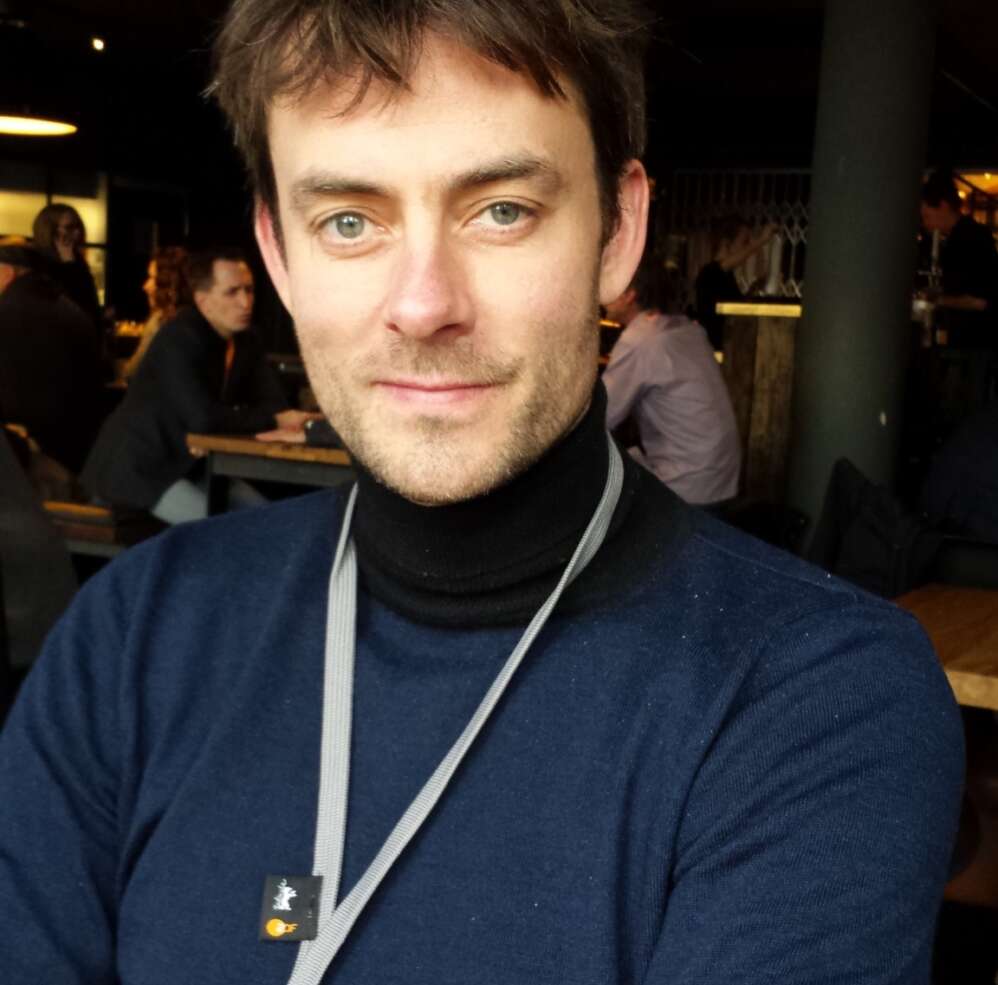WRITTEN BY: Annika Pham
We speak to Vesturport’s producer Nana Alfredsdóttir and co-director/creator Gísli Örn Garðarsson about their series pitched at the Berlinale CoproSeries and picked for Series Mania Project Exchange.

We speak to Vesturport’s producer Nana Alfredsdóttir and co-director/creator Gísli Örn Garðarsson about their series pitched at the Berlinale CoproSeries and picked for Series Mania Project Exchange.
How much of the financing of Blackport is in place and who are your partners so far?
Nana Alfredsdóttir : We’ve got around 50% of the budget confirmed, with partners including RUV the Icelandic Film Fund. Top UK producer Andrew Eaton (series producer of The Crown) has boarded the project as co-producer through his company Turbine Studios, and DR Sales are handling world sales. We just came back from the Berlinale where we pitched the project and have received very positive feedback. If all goes according to the current plan, shooting will begin early 2019.
This production seems to be a typical Vesturport creation, with many members of your theatre/film collective taking various creative roles?
Gísli Örn Garðarsson: Well Blackport was created by Björn Hlynur Haraldsson, Nina Dögg Filippusdóttir and I, as founding members of Vesturport; we've all done a lot of acting for theatre, film and TV. I just played in the Norwegian TV series One Night [Viafilm], in the upcoming Icelandic film Vultures [RVK Studios], and have done a whole lot of theatre, as director as well. Björn is in the UK doing Fortitude, season 3 and wrote and directed the film Homecoming, and Nina created Prisoners (Fangar). We are always very individually driven, but Blackport is very much a collaboration between us. I will co-direct Blackport with Björn, and it feels quite organic given the way it's evolved.
What is the core of Blackport and why is this project so close to your heart?
GÖG: Most people from my generation in Iceland were born and bread in Reykjavik, but our roots usually come from the smaller costal towns. And those towns have survived through the fishing industry from the beginning of the first settlers entering the country in 874.
The fishing industry has gone through major changes in the past decades and this has resulted in devastating results for some of these towns.
Blackport (Verbud in Icelandic) tells the story of one of these towns and is inspired by true events. At the heart of our story, we follow a married couple that, with a group of friends, build a small fishing empire in the 1980s, when the fishing industry went from the public domain into a more selective private domain with the introduction of a fishing quota system.
We follow that transition through the story of our friends and see how they cope and fight each other over the opportunity of becoming owners to one of the world’s biggest natural resources.
What is the time span?
GÖG: The time span is 1984 to 1991. In 1984, there was a Black Report in Iceland that claimed we were over-fishing, and something had to be done to control it. From 1984 to 1991, a legislation was put forward and a fishing quota was introduced and the rodeo began.
Who are the key characters?
GÖG: Our main characters are a married couple in their late 30’s, Harpa and Grímur. He’s a captain, and she works in the town hall. She sees the opportunity for them to buy a fishing trawler, rusting at sea. With a group of friends-such as Einar, a ship engineer, they get the trawler up and running and set their foot in the fishing industry. Those are tough but prosperous times.
Icelandic fishing towns were very colourful in the 80's, as people would arrive from all over the world to work in the fishing towns during the fishing season, from January to May every year. Towns would typically grow from 100 inhabitants to 500. It would often result in complete mayhem and it was not usual for people to make a small fortune.
Through the series, we witness the characters’ gradual change, from visionaries to suspicious players in a somewhat Shakespearian-driven quest for power and control. The characters turn on one another, some lose their lives, and what was once a healthy marriage between Harpa and Grímur turns into a bitter battle driven by jealousy and greed.
The series is very character-driven and anchored in Iceland’s reality with societal and political issues. It should create serious debates locally…
GÖG: There is a common saying in Iceland: well if all goes well to hell, "at least we have the fish." But the fact is that we don't. Not any more. Not as a collective. And through the series, we follow individuals who were there during the transition times. Through them, we shed a light on how some gained control while others didn't. And as to the debate, any natural resource that has been privatised deserves a debate. Some argue this was a national robbery, others that it was just a process. At least, it's inspired us to create an 8 episode TV series, so it's certainly had an effect on us creating it.